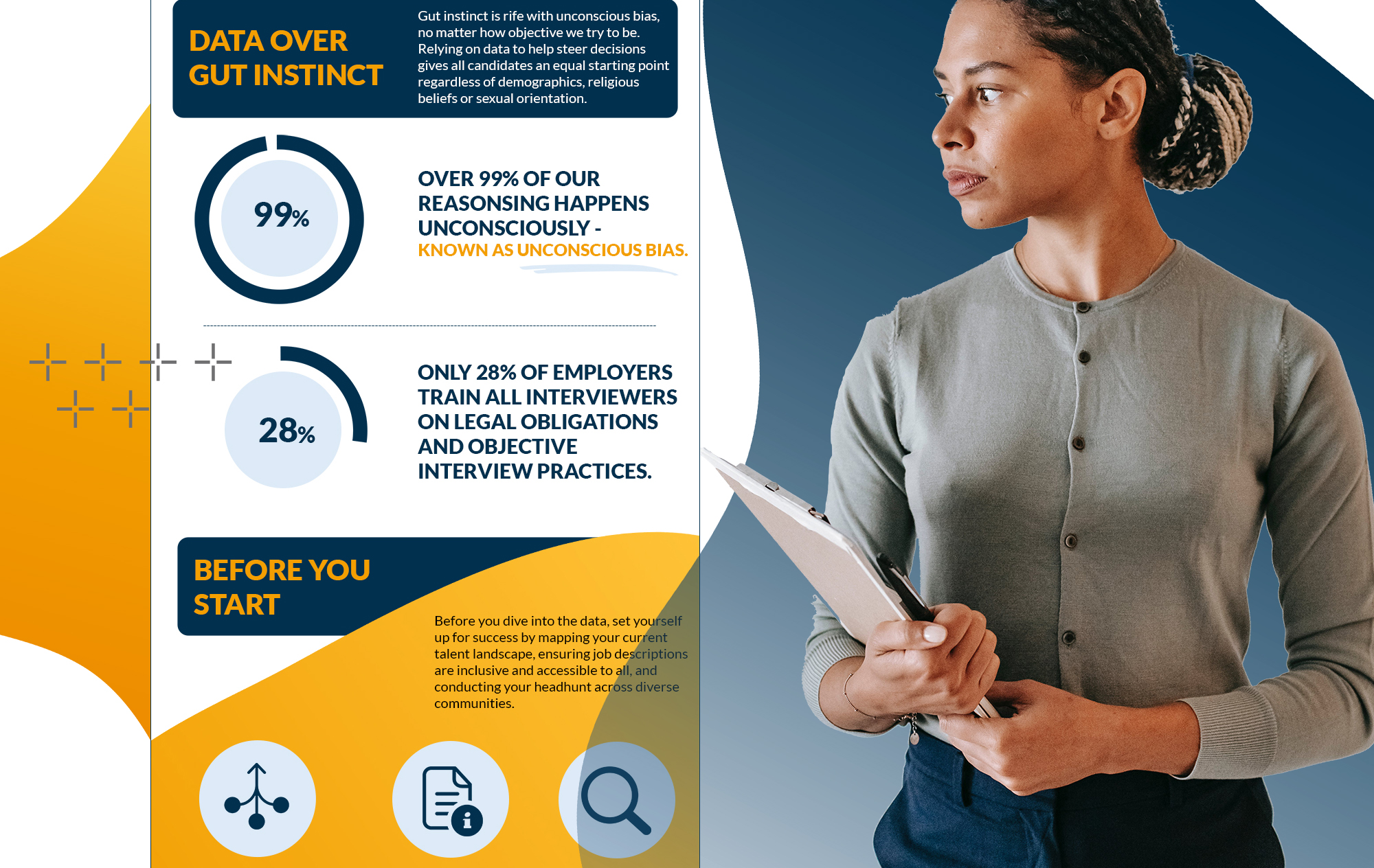Diversity, Equity and Inclusion is set to continue as a top priority for the Membership sector in 2024, but how do you ensure your EDI strategy is effectively ingraining itself in your organisation? EDI must be a priority across all levels of your organisation, but in our sector right now your commitment to diversity and inclusion must be most visible in your senior teams. So how do you ensure EDI runs to the highest levels of your organisation?
It comes down to your approach to Executive Search. Harnessing the power of data throughout can ensure a fairer hiring process and organically fuel diversity in leadership positions, which in turn can produce a whole raft of organisational benefits. Diverse teams are proven to experience better innovation, better productivity, higher staff engagement and morale and even higher revenues.
See how a data-led approach to Executive Search is the perfect foundation for your EDI strategy to flourish in our infographic.
Share this Infographic On Your Site
PREFER AN ARTICLE FORMAT?
You can read all the information from the infographic below...
Not only do organisations have a moral obligation to champion inclusivity at every level, but nurturing diverse teams from the very top can pay dividends in increased innovation, talent attraction and retention, brand perception and overall performance.
Harnessing the power of data throughout your Executive Search can ensure a fairer hiring process and organically fuel diversity in leadership positions.
Affects of EDI
- Diverse teams make better decisions 87% of the time.
- 80% of Linkedin survey respondents want to work for a company that values DEI issues.
- Companies with diverse teams are 22% more likely to be seen as “an industry-leading company with high-calibre talent”.
- Companies that have more diverse management teams have 19% higher revenue.
Data Over Gut Instinct
Gut instinct is rife with unconscious bias, no matter how objective we try to be. Relying on data to help steer decisions gives all candidates an equal starting point regardless of demographics, religious beliefs or sexual orientation.
- Over 99% of our reasoning happens unconsciously - known as unconscious bias.
- Only 28% of employers train all interviewers on legal obligations and objective interview practices.
Before you start...
Before you dive into the data, set yourself up for success by mapping your current talent landscape, ensuring job descriptions are inclusive and accessible to all, and conducting your headhunt across diverse communities.
1) Map your diversity needs assessing the current diversity levels in your organisation.
2) Write an inclusion job description excluding jargon and removing gendered terms.
3) Headhunt in diverse networks in under represented communities in particular.
Data Led Executive Search levels the playing field - here's how...
Standardised Criteria
Using standardised assessments for all candidates, such as behavioural assessments, ensures that everyone is evaluated against the same set of competencies and skills, regardless of background. This ensures a fair, equal and objective evaluation for all candidates.
Objective Evaluation
Structured behavioural assessments evaluate candidates based on merit, exploring competencies, skills and behaviours. This prevents favoritism and pre-conceived assumptions.
Transferable Skills
Candidates from varying backgrounds may have had exposure to different opportunitities and experiences, so it’s important to not solely focus on specific industry experience. Data led assessments can identify transferable skills and highlight a candidate’s potential for the role, whilst bringing unique perspectives and viewpoints.
Align Values
With a tailored behavioural assessment, you can evaluate candidates based on genuine alignments with your values, ensuring a greater fit and further promoting inclusion.
Align Stakeholders
A data-led approach needn’t be confined to candidate evaluation. In assessing the perspectives of your stakeholders on what personalities and behaviours they believe the role needs, will ensure you have a rounded benchmark on which to assess candidates against.
Keep interviewers on track
A comprehensive data led solution will provide tailored interview questions based on behavioural assessments, ensuring that interviewers remain on track with behavioural and competency based questions. This will help to steer the conversation away from pre-conceived bias.
Mitigate unconscious bias
Driving your Executive Search process with data will help to ensure those natural bias’s we all have are kept out of the decision making process, whilst giving all candidates, regardless of background, the same opportunity to shine.
Human Backed
Just with any practice, relying on data alone may miss nuances that require human interaction.
Combining a data led approach with a human expert to facilitate the process and analyse candidate data appropriately will reap the greatest results.
Find out more about how our data led Executive Search can help find the right fit for your membership organisation.
Sources: The Chartered Institute of Personnel and Development | Recruitment and Employment Confederation | Mckinsey | Linkedin | BCG

